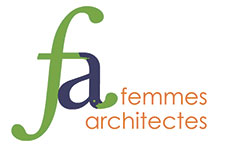
Ursula Schneider
- Site : http://www.pos-architecture.com/
- Adresse : Maria Treu Gasse 3/15 1080 Vienne
Innovative. Sustainable. Climate-optimized. Comfort-optimized. Long-living.
Since the founding in 2000, POS sustainable architecture is occupied with researching and building of sustainable architecture. The holistic approach and integral designing methods helped to develop innovations further and test them in pilot buildings. Our specialties lie in office construction, housing, public buildings, commercial buildings, and revitalization projects. The first high alpine passivhouse, an energy producing office building, the first passivhouse embassy building in tropical climate are examples for an extraordinary Planning-Know-How.
Ursula Schneider is the CEO of POS sustainable architecture
*1961 in Salzburg
married, 4 children: Simon (*1987), Jakob (*1990), Peter (*1992), Daniel (*2000)
Main focus: innovative and applied building research and consulting in the areas of Passivhaus, daylight architecture, plus-energy standard, cradle to cradle, CO²-neutral construction, recyclability, user comfort and building greening
Teaching:
Since 2013 University of Applied Sciences – FH Technikum Wien, lecture “Introduction to Green Building”, member of the planning committee for the bachelor degree programme “Green Building”
Since 2011 Danube University Krems, visiting critic for the degree programme“Future Building Solutions”
2010 - 2013 Technikum Wien, lecture series on solar and sustainable architecture
2009 TU Wien, Institute for building construction 2, lectureship
2008 TU Wien, Institute for urban development, lectureship
2007 Danube University Krems, lectures for the degree prgramme “Daylight Management” and “Real Estate Management”.
Voluntary work:
Since 2015 Member of the advisory board for building quality in Upper Austria
Since 2013 Member of the steering committee, ÖGNI (Austrian Sustainable Building Council)
Since 2013 EU construction 2020 initiative, workgroup “Sustainable Use of Natural Ressources”, sent by the Architects Council of Europe.
Since 2011 Chairwoman of the Committee on Sustainability, architectural association of Austria
Since 2011 Member of the Steering Committee of the ASBC: Austrian Sustainable Building Council
Since 2011 Nominee of the architectural association of Austria to the ACE: Architects Council of Europe, sector Environment and Sustainable Architecture
Since 2006 Member of the Committee on Sustainability, Austrian Federal Chamber of Architects and Engineering Consultants
Awards:
Austrian of the year 2011
Mies van der Rohe Award 2011
Solaraward2008
European Environmental Press Award 2008
Innovation Award "Energiespeicher Beton"
Green Building Award for Highest Innovation
ATGA Facility Award 2009
Solid Building Award
Environment Award of the City of Vienna 2007
Styrian Wooden Architecture Award 2007
Austrian State Prize for Architecture and Sustainability 2006
Environment Award of the City of Vienna 2005
Austrian Solar Prize 2005 "Euro Solar Austria"
Energy Globe Vienna 2005
Ford Environment Award 2004
|
Austrian Embassy in Jakarta, The world’s first sustainable embassy building
Indoensia‘s fist passive house: green embassy
The world’s first sustainable embassy building is also the first passive house building in Indonesia. In correspondence with
Indonesia’s climate conditions, this is a representative example of how traditional techniques, local materials, and modern
technology can be meaningfully implemented to ensure spatial quality, indoor climate comfort, and sustainability.
The excellent indoor climate and energy performance is based on a new building design which respects the principles of effective
sun protection and adopts the Passivehouse-Standard to hot and humid climate conditions. This includes as key features
a careful shading of all openings, a high thermal insulation standard for exterior walls and roofs, double glazed windows,
an air-tight building shell, a ventilation plant with energy recovery and cooling via CCTC (Concrete Core Temperature Control)
The benefits of this new design are twofold: a high level indoor comfort and a quantum change in energy consumption compared
to regular buildings in the country.
The building is gently placed into the villa-like structure of the historical Menteng district. While respecting the scales and required
distances to the neighbour buildings it still keeps it´s unique contemporary sustainable design approach. The public appearance
at the front entrance emphasises a light and natural touch by the extensive use of plants which balance the high security facilities
beyond.
The interior design provides a clear composition of generous spaces with gentle daylight and lots of long distance vistas and
outlooks. The simple range of materials is natural stone, local timber and white plaster. Specially manufactured fabrics for
interior walls designed by an Austrian artist are an intercultural link to the rich Indonesian textile tradition.
The rain water cistern provides the garden irrigation and the toilet flushing and so contributes significantly in saving valuable fresh water.
In order to foster the local added value and to save transport emissions local available materials were strictly preferred, as e.g. the total flooring material is
local stone form Yogjakarta. Local plants with integrated seepage areas will foster a natural and microclimate in the outdoor areas.
|





